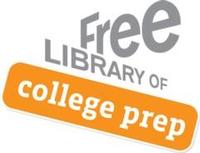Closer to the Dream: Helping Immigrant Parents and Parents of First-Generation College Students Understand the College Application Process
By Aisha A.“Betiane”* is a high school senior with a 3.30 GPA and has aspirations to go to college and obtain a Bachelors of Science degree in Business. She has a pretty good chance of obtaining financial assistance of up to $30,700 from a respectable university provided that she takes and passes a placement test and successfully represents herself during an interview. Betiane’s mother, an Haitian American immigrant is skeptical of the entire prospect and instead encourages her to go to a trade school and become a Certified Nursing Assistant (CNA).
Betiane’s situation is not unique; many first-generation college students or students with immigrant parents have the formidable challenge of having to figure out FAFSA on their own. First-generation students usually come from families with low incomes or from middle- or higher-income families in which the parents and grandparents did not attend a college or university. Many of theses parents support their children’s plans for higher education; but, others such as Betiane’s often pressure to children enter the workforce right after high school as it seems a more practical and economic option.
The college application process is a daunting task and is especially intimidating for many first generation and immigrant families. We help many students whose backgrounds include Latin America, Africa, and the Caribbean. Most families are thrilled about the idea of their children going to college and thus putting them in a better position to realize the American dream – afte rall, this was the main reason for their hard work and sacrifice in the first place, leaving everything they know and love behind in exchange for much better opportunities for themselves and their posterity.
However, because once on US soil many immigrant parents juggle caring for children and often work multiple jobs, obligations such as PTA meetings and school events often become less of a priority for them and, they often just trust their older children to do what is expected of them. So, when it comes to big decisions like going off to college and applying for financial Aid, parents and students alike can become frustrated, confused, and overwhelmed. Also certain cultural nuances may make parents hesitate to disclose information about assets and finances. For immigrants and their children, accessing financial aid is affected by other factors like language barriers and lack of awareness. The following are a few steps that will help immigrant or first generation students navigate the murky waters of the college application process:
-
Get involved: make every effort to attend PTA meetings and workshops to learn about your child’s progress and familiarize yourself with the new system. It’s also not a bad idea to schedule some local college tours and make a family outing out of it.
-
Become informed: Many immigrant families have misconceptions about college and tend to stereotype higher education as something that’s very expensive, due to their lack of education on the various options available to make college more affordable. A major investment parents can make it to devote the time to attend programs and workshops in the city such as the Free Library College Prep Program, Philly Goes to College, Vybe, and College Possible and that inform students and parents and often guide them through college and FAFSA application process.
-
Do your homework: Research colleges, universities and scholarships online with your child. While School teachers and guidance counselors are usually the primary resources, making the experience more personal will not only make you more aware and informed, but in most cases it serves as a means to motivate students to want to get out there and make the family proud. Research shows that students with more moral support are more likely to successfully complete college.
We understand that because of these students and their backgrounds they may not have any frame of reference when tackling the application process. Having resources to help in applying for financial aid has been shown to make crucial differences. Adequate financial support in the form of scholarships, federal and private grants, and loans has made education possible for millions. Parents, students, and counselors can work together to remain informed and explore the various avenues available for providing financial support.
Opal Gayle
College Prep Specialist - Abraham Lincoln High School
For more information, please contact:
Free Library of Philadelphia
The Office of Public Service Support (TOPSS)
College Prep Program
1901 Vine Street, Room 5A
Philadelphia, PA 19103
Office: 215-567-2162
Fax: 215-686-5374
Email: collegeprep@freelibrary.org
Website: http://collegeprep.freelibrary.wikispaces.net/
Stay Connected:
Have a question for Free Library staff? Please submit it to our Ask a Librarian page and receive a response within two business days.


